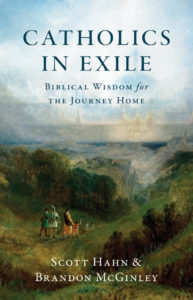What Does the Bible Teach About Righteous Anger?
By Clement Harrold

It’s easy to be angry in today’s world. Between the dishonesty in our politics, the corruption in our Church, and the incendiary effects of social media, many of us find ourselves feeling exasperated and indignant about one thing or other on a weekly or even daily basis.
When living in this kind of toxic climate, we often start neglecting the incisive words of Scripture: “He who is slow to anger has great understanding, but he who has a hasty temper exalts folly” (Prov 14:29). It seems there is something to be said for moderating our anger with wisdom.
At the same time, perhaps the presence of real evils in our world and in our Church leaves us wondering what a good kind of anger might look like. Interestingly, the verse from Proverbs doesn’t condemn anger outright; it merely warns that we mustn’t allow our anger to have mastery over us.
With this in mind, let’s explore what the Bible has to say about anger in general, and about righteous anger in particular.
What the Bible Says About Anger
There are many different Bible verses about anger. Some of them, such as Colossians 3:8, speak specifically of the sin of anger, and warn sharply against it: “But now put them all away: anger, wrath, malice, slander, and foul talk from your mouth.” Important though this teaching is, it mustn't be taken as a blanket prohibition against all forms of anger, since the Scriptures are clear that God Himself exhibits a righteous anger when the situation calls for it.
In his letter to the Romans, for example, St. Paul explains that “the wrath of God is revealed from heaven against all ungodliness and wickedness of men who by their wickedness suppress the truth” (Rom 1:18). This point is echoed throughout the Old Testament, where the anger of God is portrayed as an appropriate response to sin (e.g. Dt 32:21-22; Judg 2:20; 2 Sam 6:7; Is 5:25).
Something which the Scriptures make abundantly clear, however, is that the God who shows anger toward sin is also a God of mercy. When God descends in a cloud to meet Moses on the top of Mount Sinai, He reveals Himself as “a God merciful and gracious, slow to anger, and abounding in steadfast love and faithfulness” (Ex 34:6). This description of God is then repeated again and again throughout the Old Testament (see Num 14:18; Ps 86:15; Ps 103:8; Ps 145:8; Joel 2:13; Jon 4:2; Neh 9:17)
In the New Testament, too, there is a recognition that God’s slowness to anger is a reflection of His patient and merciful love (see Rom 2:4; 2 Pt 3:9). He is always a God of second chances—always prepared to forgive His creatures and restore them to their former beauty. As such, the God of the Bible typically only manifests His anger as a last resort, when all other means of achieving reconciliation and justice have failed.
One point of great importance across the Scriptures is that God’s slowness to anger is something which we are called to imitate. As Proverbs explains, “He who is slow to anger is better than the mighty, and he who rules his spirit than he who takes a city” (Prov 16:32; cf. 19:11). Ecclesiastes puts it another way: “Be not quick to anger, for anger lodges in the bosom of fools” (Eccl 7:9).
Clearly, there is great virtue in disciplining the emotions and controlling one’s temper. This point is emphasized by St. James, who reminds us that an overly hasty anger is an impediment to grace: “You must understand this, my beloved: let everyone be quick to listen, slow to speak, slow to anger; for your anger does not produce God’s righteousness” (Jas 1:19-20).
Righteous vs. Unrighteous Anger
In his letter to the Ephesians, St. Paul neatly sums up the biblical perspective on anger: “Be angry but do not sin; do not let the sun go down on your anger, and give no opportunity to the devil” (Eph 4:26-27). In other words, there is good anger and there is sinful anger; there are times when anger is appropriate, but we must never allow it to dominate us, because if we do, the devil will use it to his advantage.
St. Paul’s balanced treatment of anger is picked up by the great Medieval theologian, St. Thomas Aquinas, who discusses anger in his Summa Theologiae. There Aquinas notes that anger is, strictly speaking, a passion of the soul. And while there are some passions like envy (what Aquinas terms “displeasure at another’s good”) which are inherently sinful, anger is one of those passions which can be either good or bad, depending on the context. He explains:
[A]nd thus evil may be found in anger, when, to wit, one is angry, more or less than right reason demands. But if one is angry in accordance with right reason, one’s anger is deserving of praise.
For Aquinas, anger that is not moderated by reason is sinful; in fact, it’s one of the seven capital vices, because it’s something from which many other vices flow. (Since anger is usually accompanied by high emotions, and since it tends to dress itself up as being morally righteous, Aquinas warns that it can lead to a variety of other sins, such as imprudence, hatred, and profanity.)
At the same time, Aquinas is firmly of the view that there is such a thing as righteous anger, which is deserving of praise. This occurs in response to evil, when a passionate yet controlled expression of anger is not only permissible but obligatory. Indeed, for Aquinas, there are times when the failure to be angry can itself be a sin, since in the face of injustice, “the lack of anger is a sign that the judgment of reason is lacking.” He is careful to note, however, that even righteous anger “should not be immoderately fierce, neither internally nor externally.”
The Anger of Jesus
As true God and true man, Jesus was no stranger to righteous anger. Although He never lost His temper in the sense of submitting to uncontrolled bursts of emotion, He did experience anger as a healthy passion of the soul—and He was prepared to express it when the situation called for it.
A famous example of this comes in His cleansing of the temple, when His “zeal” for God’s house led Him to make a whip, turn over the tables, and drive out the merchants and their livestock (see Jn 2:13-25). Another allusion to His righteous anger comes in Mark’s Gospel, following one of His exchanges with the Pharisees: “And he looked around at them with anger, grieved at their hardness of heart” (Mk 3:5). Later on, Mark alludes to Jesus being “indignant” when His disciples prevent the children from approaching Him (see Mk 10:14).
At the tomb of Lazarus, we are twice told that Jesus was “deeply moved” (Jn 11:33,38). The Greek word John uses here is embrimaomai, the same word that ancient authors used to describe the rearing up of war horses before charging into battle. Jesus knew better than anyone the effects the devil has had in undermining the created order. Faced with the destruction of His Father’s beautiful creation and the death of His beloved friend, Jesus wasn’t just sorrowful; He was furious.
Finally, it’s worth remembering that if Jesus provides us a model for righteous anger, He also offers a stern warning against the sin of anger: “But I say to you that every one who is angry with his brother shall be liable to judgment” (Mt 5:22). Here Jesus expands and intensifies the requirements of the Mosaic Law. While those of us living under the New Covenant of love have a right and a duty to be angry in the face of evil, we must avoid at all costs those sinful forms of anger which give the devil his opportunity.
Further Reading
Fr Thomas Morrow, Overcoming Sinful Anger: How to Master Your Emotions and Bring Peace to Your Life (Sophia Institute Press, 2015)
You Might Also Like
From the day the Gospel dawned in the World, Christians have occupied a remarkable place—citizens of heaven, but heirs to the world; loving the world, yet persecuted by the world. A second-century author remarked that Christians are to the world what the soul is to the body. It was people of faith who transformed Greco-Roman civilization and empowered it to thrive.
This is the way of believers in every age, “always carrying in the body the death of Jesus, so that the life of Jesus may also be manifested” (2 Cor 4:10).
In this book, Catholics in Exile: Biblical Wisdom for the Journey Home, authors Scott Hahn and Brandon McGinley demonstrate that the same power that converted the world in the first century is still converting the world today. Providence is not like a sporting event, or the stock market, or the battlefield, where progress can be measured. But it is more reliable than any measurement we have.
